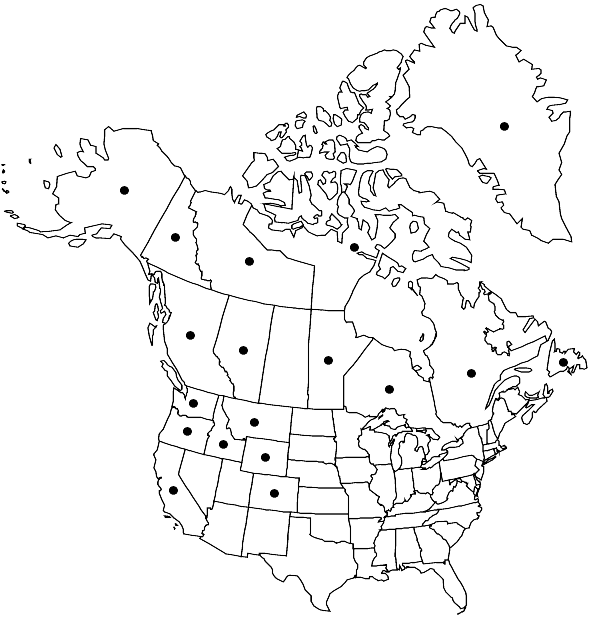Dicranella crispa
Coroll. Bryol. Eur., 13. 1856,.
Plants to about 5 mm, yellow-green. Leaves 0.6–2 mm, the distal leaves squarrose and linear-subulate from a sheathing base, the proximal spreading-flexuose and lanceolate; margins plane, usually serrulate at the apex; costa percurrent (nearly filling the slender apex); distal cells 2-stratose, long and narrow (6–8:1). Sexual condition dioicous (also reported to autoicous). Perichaetial leaves 2–3 mm, plainly squarrose. Seta red, 5–18 mm. Capsule erect or nearly so, tapered to the base and ribbed when dry, 0.7–0.9 mm; annulus of 2 rows of cells, deciduous or persistent; operculum rostrate, sometimes curved; peristome teeth 300–350 µm, divided 1/2 of the length distally. Spores 17–20 µm, papillose to smooth.
Phenology: Capsules mature spring and summer.
Habitat: Moist, often sandy or silty soil
Elevation: medium to high elevations
Distribution

Greenland, Alta., B.C., Man., Nfld. and Labr. (Nfld.), N.W.T., Nunavut, Ont., Que., Yukon, Alaska, Calif., Colo., Idaho, Mont., Oreg., Wash., Wyo., n, c Europe
Discussion
The leaves of Dicranella crispa, particularly the distal, are wide-spreading from a clasping base, while the slender capsules are erect, tapered to the base, and distinctly striate. According to R. S. Williams (1913), the male inflorescence may be on a separate branch or separate plant. The distribution above includes reports by E. Lawton (1971) and D. H. Norris and J. R. Shevock (2004).
Selected References
None.